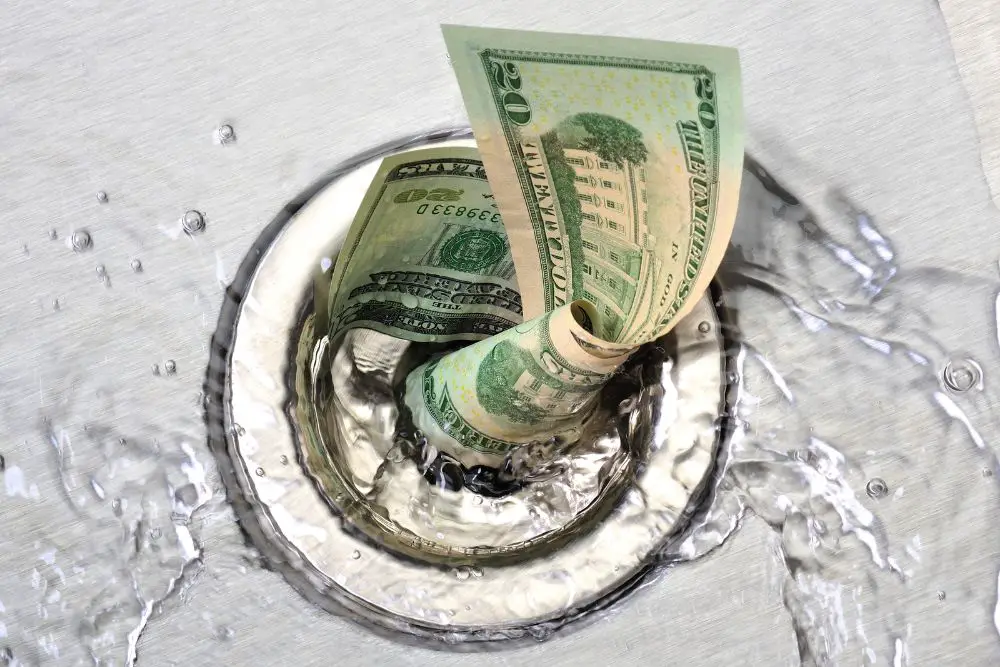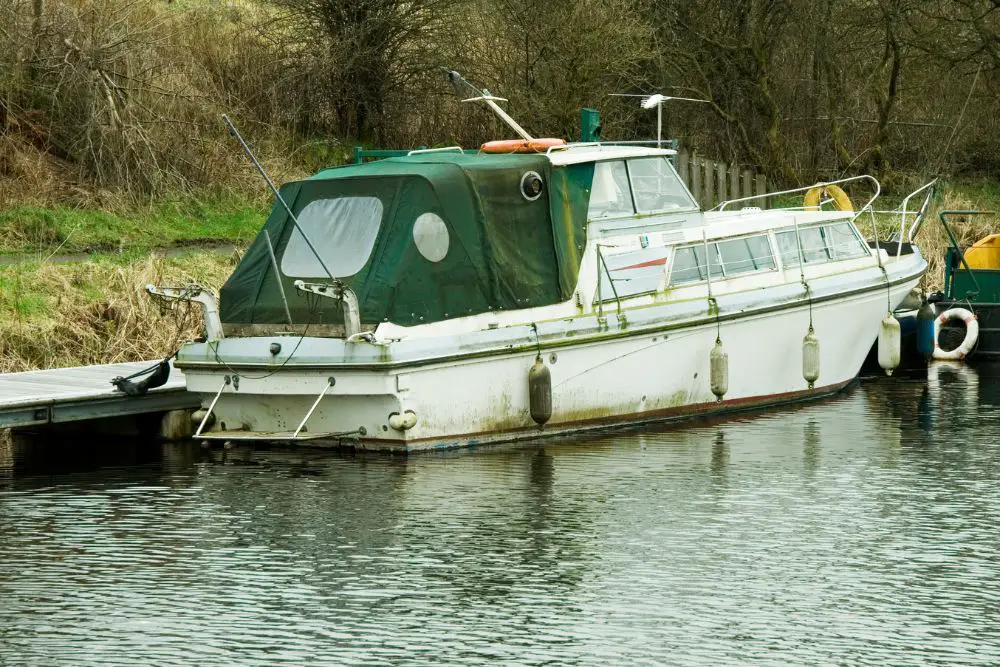Boats are a great way to escape the hustle and bustle of everyday life. They provide an opportunity for relaxation, adventure, and exploration on the open waters. But what many people don’t realize is that owning a boat can be an expensive endeavor, one that often drains wallets much faster than expected! Are boats money pits?
Owning a boat sounds like an idyllic dream – beautiful sunset cruises, weekend getaways with family and friends, fishing trips with your kids…the list goes on and on. It’s easy to get caught up in the fantasy of it all without considering how much work and money it takes to keep a vessel afloat. Even after purchasing a boat, there are still ongoing costs associated with its upkeep: fuel, maintenance supplies, docking fees…it adds up quickly! What happens when these costs become too much? Is it possible to own a boat without breaking the bank?
The answer is yes, but only if you’re well-informed about potential expenses before taking ownership of a vessel. Experienced boaters know best when it comes to navigating through financial pitfalls; they have learned firsthand which investments pay off and which ones sink their wallet. In this article we’ll discuss common myths about boat ownership as well as tips to save money while maintaining your vessel. So let’s dive into the deep end: do boats really qualify as money pits?
Definition Of A Boat
At first, glance owning a boat might seem like an ideal way to enjoy the water. Take Tony and Jenny as an example – they recently purchased a 25-foot sailboat with dreams of sailing around their local lake on sunny days. But before they could take it out for its maiden voyage, they quickly realized that boats aren’t only about sunshine and fun; they can also be money pits!
A boat is defined as any type of watercraft used for transportation or pleasure. This includes small dinghies, fishing boats, yachts, motorboats, and sailboats. Many types of vessels are categorized by size such as “small craft” (under 8 m) or “large craft” (over 24 m). In general, though, all these different types of boats have one thing in common: there are associated costs involved with purchasing and maintaining them.
It’s not just the initial purchase price you need to consider when thinking about buying a boat; there are ongoing costs too such as fuel, insurance premiums, and dock fees which add up over time. So while owning a boat may bring joy today, potential buyers should keep in mind that long-term financial responsibility comes along with it as well.
Before making the choice to invest in a vessel, prospective owners must weigh both the positive and negative aspects of being a boat owner – including whether or not the cost outweighs the reward.
Costs Of Owning A Boat
When it comes to boat costs, there’s a lot more than meets the eye. The purchase price of a vessel is just the beginning – owning a boat also involves ongoing costs for fuel, insurance premiums, and dock fees which add up over time. Therefore, prospective buyers should take into consideration the full cost of ownership before making the decision to invest in a boat.
The cost of buying a boat can vary widely depending on size and condition; however, any potential buyer should keep in mind that boats are subject to maintenance and depreciation like other large purchases. Maintenance expenses include routine engine servicing or repairs as well as replacing parts such as sails, rigging or electronics. It’s important to factor these costs into your budget when considering whether or not you’re ready for boating life.
And then there’s the issue of depreciation: once you buy a boat, its value will start depreciating immediately. This means you could end up with less money if you decide to sell it down the line compared to what you paid for it initially. To avoid this risk altogether and minimize future losses, consider investing in an older model instead of buying a brand new one, though bear in mind that older vessels may require additional upkeep which needs to be factored into your budget too.
With all these considerations taken into account, potential owners must assess both the positive and negative aspects of being a boat owner – including whether or not they’re willing and able to commit long-term financially before making their final decision.
Maintenance And Repairs
Comparing boat maintenance to a game of whack-a-mole, it can often seem like as soon as one issue is solved another pops up in its place. This is why routine upkeep and repair costs are important factors to consider when deciding whether or not boating life is for you – especially since some of these expenses can add up quickly.
Routine boat maintenance may include polishing the hull, checking the propeller shafts for corrosion, lubricating steering and engine parts as well as inspecting the sail rig for any wear and tear. These tasks should be done regularly according to the manufacturer’s instructions, failure to do so may result in costly repairs down the line. For example, if your motor isn’t serviced properly or on time, it could lead to breakdowns which will require professional attention at a significant cost.
Apart from regular preventive measures, unexpected repairs such as replacing worn-out sails or rigging can also occur during ownership. Depending on how much use your vessel gets and what type of climate it’s exposed to, certain components might need more frequent replacements than others; however, this kind of unpredictable expense doesn’t have to break the bank as long as proper budgeting takes place beforehand.
Therefore, prospective owners must research all aspects related to boat upkeep before investing their hard-earned money into a vessel, otherwise, they risk facing added financial stress once the purchase has been made.
Insurance Considerations

When deciding if boating is an activity worth investing in, it’s important to consider the added cost of boat insurance. Marine insurance can provide a layer of protection against unexpected accidents and losses, as well as peace of mind while out on the water. The coverage costs vary depending on the type and size of the vessel being insured, so it’s best to shop around for the most comprehensive plan that fits within your budget.
Another important aspect to keep in mind when considering boat insurance is accident prevention. Accidents may not always be preventable due to factors like severe weather conditions or other vessels’ actions; however, there are certain measures one can take to reduce their risk such as paying close attention to navigation laws and having adequate lighting installed on board at all times. This kind of proactive behavior helps protect both you and your investment by minimizing potential damage caused by negligence or carelessness.
Overall, marine insurance provides much-needed security for those who partake in recreational boating activities, but its cost shouldn’t be taken lightly either. It’s essential that each individual considers their own lifestyle needs before making any decisions regarding this form of boat protection. With proper research and preparation, prospective owners will have a better understanding of what they need from their policy and how much they should expect to pay for it. From here they can decide whether or not the extra expense is worthwhile given their individual circumstances – with depreciation over time also factored into consideration.
Depreciation Over Time
When considering the purchase of a boat, it’s essential to factor in its potential for depreciation over time. Boats can be expensive investments and require regular upkeep to maintain their value and longevity. While there are many benefits associated with owning a boat, understanding how much your vessel will depreciate is key in making an informed decision about whether or not it’s worth investing in.
To start off, it’s important to know that boats, like cars, tend to lose value more quickly than other types of vehicles due to their exposure to the elements. The average rate of depreciation for recreational vessels ranges between 10-15% per year, depending on age and size; meaning after five years, you may have around half the original selling price remaining. This number can vary greatly based on the condition of the boat as well as its maintenance history, so having a clear picture of these factors beforehand helps ensure that you get the most out of this large expenditure.
Here are some additional points when taking into account boat depreciation:
- Boat Value: Over time, even properly maintained boats tend to decrease in resale value due to wear and tear from use. But regularly scheduled maintenance can help keep them looking good and running smoothly for longer periods of time, resulting in higher resale values down the road.
- Depreciation Rate: Factors such as storage location (covered vs uncovered) and type/age of engine used also play a role in how rapidly a boat depreciates over time. Additionally, certain types of boats hold up better against environmental degradation than others – fiberglass hulls being particularly resilient compared to aluminum ones which corrode faster underwater.
- Boat Upkeep: Investing in routine care such as cleaning/waxing surfaces, replacing worn parts/equipment, or performing engine tune-ups goes a long way towards maintaining optimal performance while preserving overall market value throughout ownership
- Boat Longevity: Ultimately the goal is prolonging your investment by using preventative measures before things become costly repairs later down the line – something every boater should strive for if they want maximum bang for their buck!
Given all these considerations one must make regarding boat depreciation rates and proper upkeep needs, it’s easy to see why researching ahead of time is so vital when thinking about purchasing any kind of marine vehicle. Being aware of this information upfront allows prospective owners valuable insight into what they should expect during both ownership and resell phases, helping them make smarter decisions along the way!
Benefits Of Owning A Boat
Despite the fact that boats can be a costly investment, there are many benefits associated with owning one as well. From boat trips to fishing opportunities, having your own vessel opens up an array of recreational uses and activities for you and your family to enjoy – not to mention countless hours spent on the open water! Here’s a look at some of the advantages:
- Boat Trips: Boating allows you to explore new places while taking in gorgeous views from the comfort of your own home away from home. Plus, it’s much easier to plan out trips when all you need is right onboard!
- Boating Experience: With regular use comes experience, something that’s invaluable when navigating tricky waters or dealing with unexpected issues along the way. The more time spent on the boat, the better prepared you to become should any unforeseen circumstances arise.
- Fishing Opportunities: If fishing is your passion then owning a boat gives you access to ample spots otherwise inaccessible by land-based anglers. Plus, having a boat makes it easy to move around within bodies of water so you have plenty of options for finding just the right spot teeming with fish!
- Recreational Uses & Water Sports: Whether it’s tubing, wakeboarding, jet skiing or simply hanging out on the deck enjoying nature, boating provides nonstop fun for everyone involved!
With so many positive aspects of owning a boat, it’s no wonder why these vessels continue to remain popular among those looking for adventure out on the open seas. But if purchasing isn’t feasible given financial restraints or personal preferences, fear not; there are always alternatives such as chartering or renting available too.
Alternatives To Purchasing A Boat
For those who don’t want to commit to buying a boat of their own, there are plenty of alternatives for getting out on the water without breaking the bank. From sailing charters and boat rentals to paddleboarding, kayaking, or canoeing – all offer up exciting ways to explore lakes, rivers, and oceans alike!
One of the great benefits of not owning a boat is that you’ll never have to worry about maintenance costs or storage fees. You can just show up at your destination with an outdoor enthusiast mentality and get ready for some serious fun in no time! Not only do these options save money, but they also provide flexibility since most require minimal advanced planning.
And depending on where you go boating, you may even come across hidden gems such as local wildlife-watching spots or off-the-beaten path restaurants tucked away along waterfronts. With so many enjoyable activities available when renting or chartering boats, it’s easy to see why this option remains popular among many looking for a memorable experience out on the waves.
Frequently Asked Questions
What Type Of Boat Is Best For My Needs?
When considering what type of boat is best for your needs, there are several options to consider. Motorboats, sailboats, fishing boats, inflatable boats and pontoon boats each offer a unique set of features that can be beneficial depending on the situation.
Motorboats are typically well-suited for activities like waterskiing or wakeboarding due to their powerful engines and fast speeds. Additionally, they often feature comfortable seating areas with plenty of room for passengers. On the other hand, if you’re looking for an activity such as sailing or fishing then a sailboat or fishing boat might better suit your needs. Sailboats have no motor and rely solely on wind power while fishing boats provide more space and stability which makes them ideal for casting off into deeper waters.
Inflatable boats are great choices when portability is important since they can be easily transported in smaller vehicles and stored away without taking up much space. For those who simply want to relax out on the water then a pontoon boat may be the perfect pick; these vessels come equipped with amenities such as grills, tables and coolers so you’ll always have everything you need nearby.
No matter which type of vessel you decide upon, it’s important to take some time researching all the available options before making any commitments so that you can find one that meets both your budget and recreational desires.
How Much Does It Cost To Use A Boat For Recreational Purposes?
Using a boat for recreational purposes can be likened to sailing on the high seas. You may set out with dreams of adventure and exploration, but you’ll soon learn that the journey will not come without cost. Boating comes with many expenses involved in maintaining and using a boat, such as costs related to fuel, dock slips, insurance, storage fees, repairs, and maintenance.
In order to understand how much it might cost to use your boat recreationally, first consider the different types of boating expenses:
- Boat Costs: This includes purchasing or leasing the vessel itself plus any add-on features like sails, electronics, or motors.
- Recreational Boating: Includes entry fees into marinas, docking fees while at sea or other waterways, and mooring costs if applicable.
- Boat Usage: Cost associated with operating the vessel including fuel costs and any additional items like anchors or life vests required for safety measures.
- Boating Expenses: Additional charges include yearly registration fees for licensing the vessel as well as regular maintenance such as oil changes or engine tune-ups.
- Boat Maintenance: Ongoing upkeep is necessary for keeping a boat in good condition which could involve replacing worn parts or refinishing surfaces within the interior/exterior areas of the watercraft.
The amount spent on these supplies combined with time invested when performing DIY tasks are some factors that should be considered before deciding whether boat ownership is right for you. Recurring payments such as docking fees also need to be taken into account since they can quickly add up over time depending on where you go boating regularly. Taking all this information into consideration will help ensure you make an informed decision about entering the world of recreational boating.
What Is The Best Way To Store A Boat?
When it comes to boat storage, there are a few options available depending on your needs. Boat winterization involves preparing the vessel for any cold-weather conditions that may arise in order to protect it from damage. This includes checking and servicing the engines, fuel tanks, and other necessary components; draining water lines; adding antifreeze; and covering essential areas of the boat with plastic or polyethylene sheets.
Boat mooring is another option that can involve tying up the boat at a dock or anchoring it offshore in deep waters. It’s important to know what type of mooring system will work best for you before deciding on an option as some might require additional maintenance costs each year.
Finally, if you prefer not having to take care of your boat every season then storing it on a trailer could be the way to go. Make sure the trailer fits the size of your boat properly and remember to cover it with either a tarpaulin or custom-made canvas cover when traveling long distances. These covers will help keep dust, dirt, and debris away from your valued asset – all while keeping its value intact!
Are There Tax Deductions For Owning A Boat?
Owning a boat can be expensive, and it is important to know if there are any tax deductions available for recreational boats. Boat owners should find out what kind of tax deductions might be available when they purchase or repair their vessel. There are several aspects of boat ownership that may qualify for tax deductions, so understanding these items can help offset some of the costs associated with owning a boat.
When filing taxes, those who own a recreational boat need to consider factors such as repairs and other related expenses. Depending on the type of maintenance done to the vessel, certain types of repairs may result in an eligible deduction from taxable income. Additionally, depending on the state where the boat is registered, registration fees may also have potential tax benefits for boat owners.
It is essential for people considering purchasing a boat to understand all the financial implications involved in doing so before making their final decision. Being aware of potential tax deductions could make the cost of owning a boat more manageable by reducing one’s total taxable income and providing significant savings over time. Researching applicable regulations within your area will provide additional clarity around which kinds of expenses can qualify for deductibles when it comes to boat ownership and repair costs.
How Often Should I Service And Repair My Boat?
Owning a boat is an exciting endeavor, but it also comes with its own set of responsibilities. Regular maintenance and repair are just as critical for a boat as they would be for any other vehicle or machine. Knowing when and how often to service and repair your vessel can help you save money in the long run.
The frequency of servicing and repairs depends on several factors, primarily usage, weather conditions, and type of engine. For example, if you use your boat frequently during summer months in warmer climates, then more frequent maintenance may be needed than if you only take it out occasionally in cooler temperatures. In general, however, setting up regular intervals for routine inspections and upkeep should suffice. This includes checking all the systems regularly such as the hull’s condition (fiberglass), fuel system components, steering equipment, electrical wiring, etc., along with replacing any worn-out parts.
When it comes to maintaining your boat, investing in quality products is important since cheap parts might cost less initially but will require more frequent replacements over time. Additionally hiring a reliable licensed technician who specializes in marine engines can ensure that every part continues working safely at peak performance levels without needing constant repairs. All these steps combined will not only make sure that your vessel remains operational throughout the year but will also prevent costly breakdowns or accidents due to improper handling or faulty parts.
In summary, knowing how often to service and repair one’s boat is key to keeping things running smoothly while avoiding expensive problems down the line. By scheduling regular checkups and replacing parts as needed with quality materials from trusted sources, boaters can enjoy their vessels worry-free for many years ahead!
In Conclusion
Owning a boat can be an incredibly rewarding experience, but it’s important to understand the costs and responsibilities associated with it. Boats are often referred to as ‘money pits’ because their maintenance and upkeep require not just financial resources, but also time and effort.
When considering whether or not purchasing a boat is right for you, make sure that you have weighed all of your options carefully – what type of boat best fits your needs? How much will it cost to use recreationally? What kind of storage do you need? Are there any tax deductions that apply when owning a boat? And how often should I service and repair my vessel?
These are all key questions that must be answered before jumping into boat ownership. The truth is, boats require dedication, they are like living organisms in many ways; they need regular care and attention if they’re going to remain reliable and safe on the water. It’s like having another family member: sometimes you may wish its presence away, yet without them, life would simply be incomplete.


